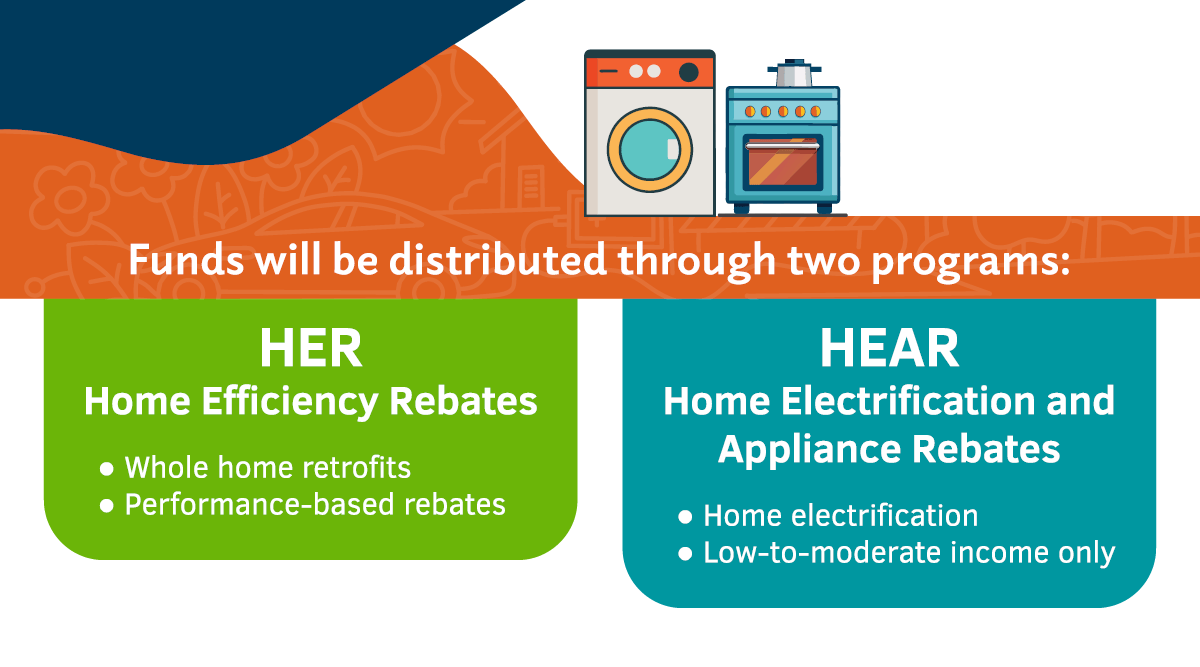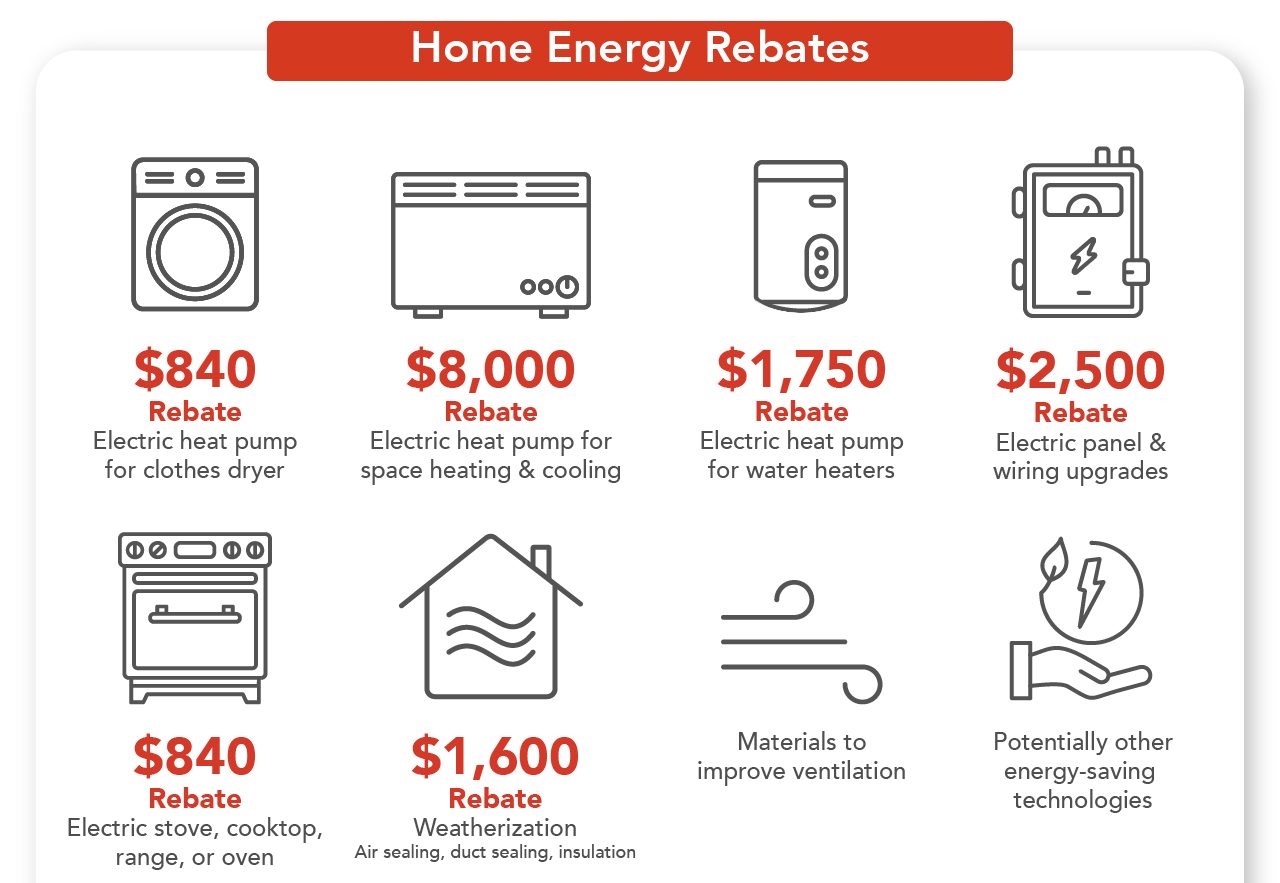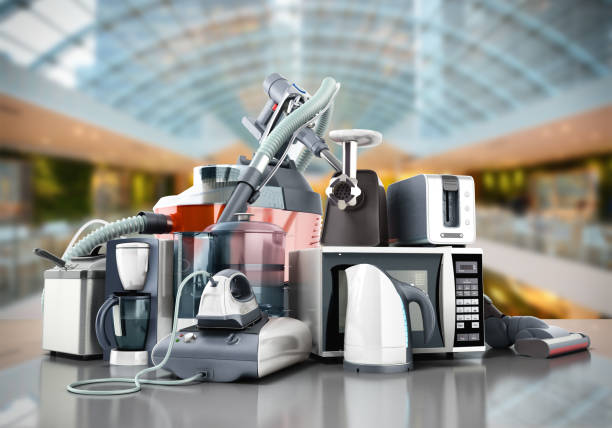The Inflation Reduction Act (IRA) is the most far-reaching climate bill in US history, designed to put more Americans on renewable energy. The IRA far exceeds solar panels and electric vehicles by allocating $4.5 billion for the Home Energy Rebates program, which offers cash back on energy-efficient home appliances such as electric ranges, ovens, cooktops, heat pumps, and heat pump water heaters.
Why This Matters
As stated by Ari Matusiak, Rewiring America CEO, the rebates will enable millions of Americans to switch from gas-powered home appliances, cutting carbon emissions while saving energy costs. Based on your income, you may be eligible for thousands in rebates on installation and buying—like contractor charges and rewiring charges.
These programs will be available until funds run out or September 30, 2031, whichever comes first. Since states manage these rebates, you will want to check the U.S. Department of Energy’s rebate portal to track your state’s rollout.
What the Home Energy Rebates Cover
There are two main rebate programs under the IRA, each with different eligibility requirements and savings potential.
Home Electrification and Appliance Rebates (HEAR)
This is an income-based program, and middle- and low-income families are more able to make the change to electric appliances.
For families with incomes of up to 150% of their region’s median income (Use this HUD Income Tool to check yours).
The rebate is issued at the time of purchase, so you do not have to wait for reimbursement.
Possible savings:
- Up to $840 for an Energy Star–qualified electric range, cooktop, oven, or heat pump dryer.
- Up to $1,750 for Energy Star–qualified heat pump water heater.
- Up to $8,000 for Energy Star–qualified heat pump capable of both heating and cooling.
- Up to $500 for the contractor’s fees.
- Up to $2,500 for wiring upgrades for electricity.
- Up to $14,000 in aggregate rebates per residence.
Home Efficiency Rebates (HER)
While HEAR is limited to eligible income levels and focuses on the retrofitting of home energy efficiency, the program is open to all income levels and targets retrofitting home energy efficiency overall.
- Requires a minimum of 20% energy savings in your house.
- Involves upgrades such as windows, HVAC, insulation, and electrical upgrades.
- Maximum rebate: $8,000.
- Must have a home energy audit prior to beginning upgrades (Find a certified energy auditor).
How to Get Home Energy Rebates
Rebate programs are state-run, and most states are already making their programs available. See the status of your state’s rebate here.
Certain states, such as New York, have an existing web portal to apply. Others will have you dealing with a licensed retailer or contractor, who will take the rebate out first.
Your state program might not be operational yet, but you need to shop today anyway:
- Save receipts and records.
- Only purchase products with Energy Star-certified labels.
- Investigate other money-saving incentives from your state or local utility (Check DSIRE for state incentives).
What If You are Not Eligible
Even if you are not qualified for rebates, you may still be eligible for IRA incentives in the form of tax credits.
Energy Efficient Home Improvement Tax Credit (25C): Pays for 30% of expenses (up to $2,000 annually) on heat pumps, insulation, high-efficiency electrical systems, and professional energy audits. It can be paired with state and utility rebates.
Top Energy-Efficient Appliances to Purchase
If an upgrade is on your mind, ensure that your appliance is eligible for the rebate. These are some of the top picks:
Electric Heat Pump Dryers
- Energy-efficient and saving money in the long run.
- It can be vented without.
- Recommended model: Energy Star Heat Pump Dryers
Induction Cooktops and Ranges
- 85% efficiency in heat compared to 32% for gas.
- Zero indoor air pollutants emitted.
- Top pick: GE Profile Induction Range
Heat Pumps for Heating & Cooling
- Best overall heating and air conditioning solution.
- Saves up to 50% of energy bills.
- Top pick: Mitsubishi Electric Heat Pumps
Heat Pump Water Heaters
- 75% less energy than conventional water heaters.
- New regulations by 2029 will eliminate non-heat pump models.
- Top pick: Rheem Hybrid Electric Water Heater
Conclusion
Although these rebates are designed to last until 2031, funds are allocated by the state, meaning they could run out sooner. If you are planning an upgrade, stay informed, track your state’s progress, and be ready to apply once your rebate program launches.
For the latest updates on rebate availability and appliance recommendations, subscribe to the Department of Energy’s Home Electrification Newsletter.

